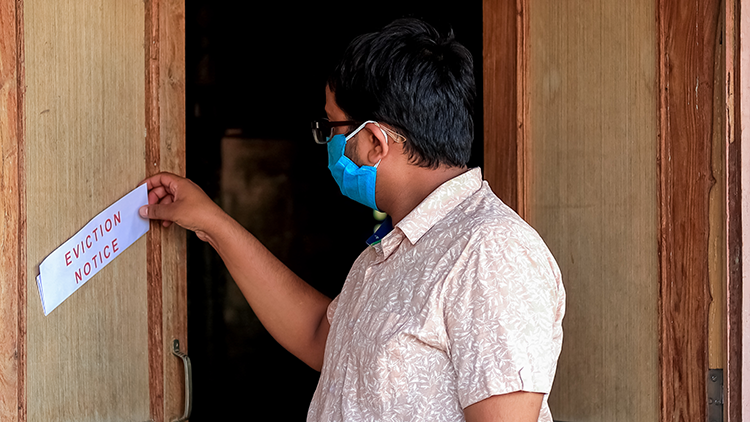To protect homeowners and renters still affected by COVID-19, ABA and White House team up on new initiative

Image from Shutterstock.
The ABA is working with the White House on a new initiative to protect renters and homeowners who remain affected by the COVID-19 pandemic and related economic instability.
On Wednesday, the White House Summit on Eviction Prevention will bring together local government, judicial, legal and community leaders from 50 cities to develop strategies to provide vulnerable families access to counsel, divert evictions and connect renters and landlords to resources.
“It is essential that lawyers and court systems step up to help prevent housing loss among struggling families and stabilize small property owners,” said ABA President Patricia Lee Refo in a June 25 news release. “They have a critical role to help ensure that rental assistance gets distributed to landlords and tenants it was intended to protect.”
The White House, which is also collaborating with the Legal Services Corp. and the National Conference of Bar Presidents, announced the summit and other initiatives to help state and local governments prevent evictions June 24.
“Drawing on local leaders from across the court system, legal services and legal advocacy communities, philanthropy, nonprofit services and local government, the White House will support and facilitate coordination among these stakeholders in developing locally tailored solutions that incentivize the use of emergency rental assistance and keep tenants stably housed while also providing a model for the coordination required in communities across the country to fully address the eviction crisis,” the White House said in a statement.
Congress has allocated $46.5 billion in emergency rental assistance to help renters and landlords cover their payments. The Biden-Harris administration provided guidance in May to state and local governments that are directing funds to those in need, but the White House said in its statement that they “must do better.”
The ABA and the Harvard Negotiation & Mediation Clinical Program also released a report June 23 that identifies best practices among nationwide eviction prevention and diversion efforts.
Among its findings, Designing for Housing Stability: Best Practices for Court-Based and Court-Adjacent Eviction Prevention and/or Diversion Programs shows that most programs provide full or limited legal representation, a legal hotline or help desk, tenant rights or education programs, rental or cash assistance, and pre- or post-filing mediation services.
The report, which was coordinated by the Evictions Committee of the ABA Task Force on Legal Needs Arising from the Coronavirus (COVID-19) Pandemic, also provides a checklist for any eviction prevention or diversion program.
“Eviction diversion programs are critical to preventing severe and long-lasting harm to adults and children nationwide,” said Emily Benfer, chair of the Evictions Committee, said in a June 23 news release. “‘Designing for Housing Stability’ is an outstanding resource for securing housing stability and protecting the health and well-being of communities across the country.”



